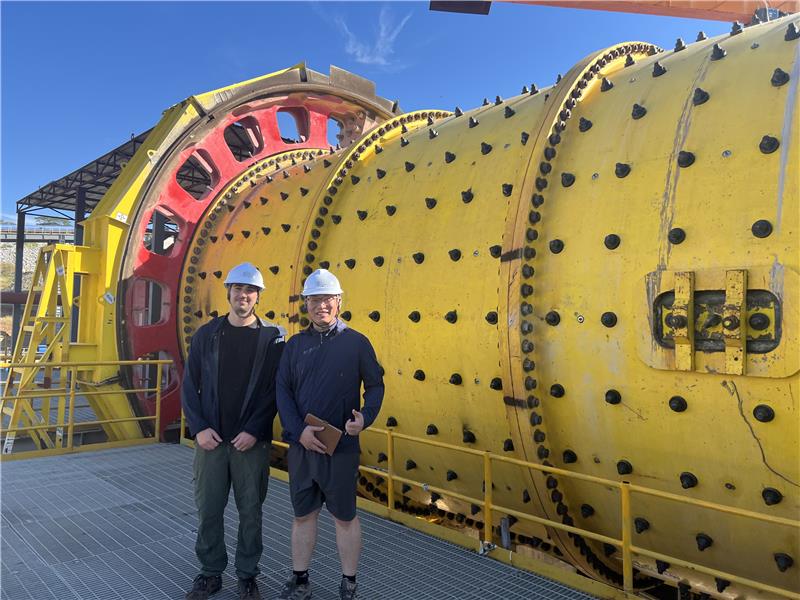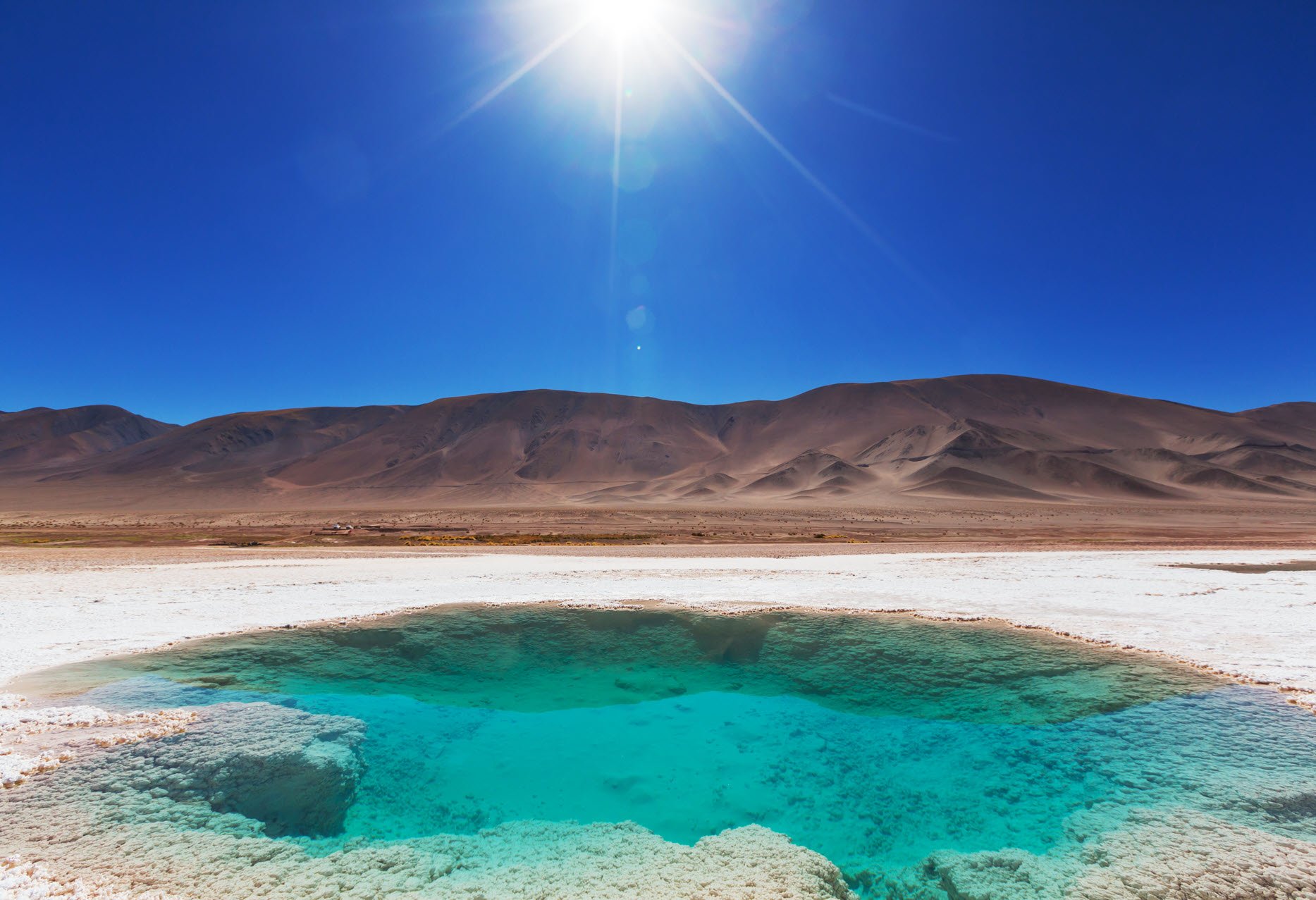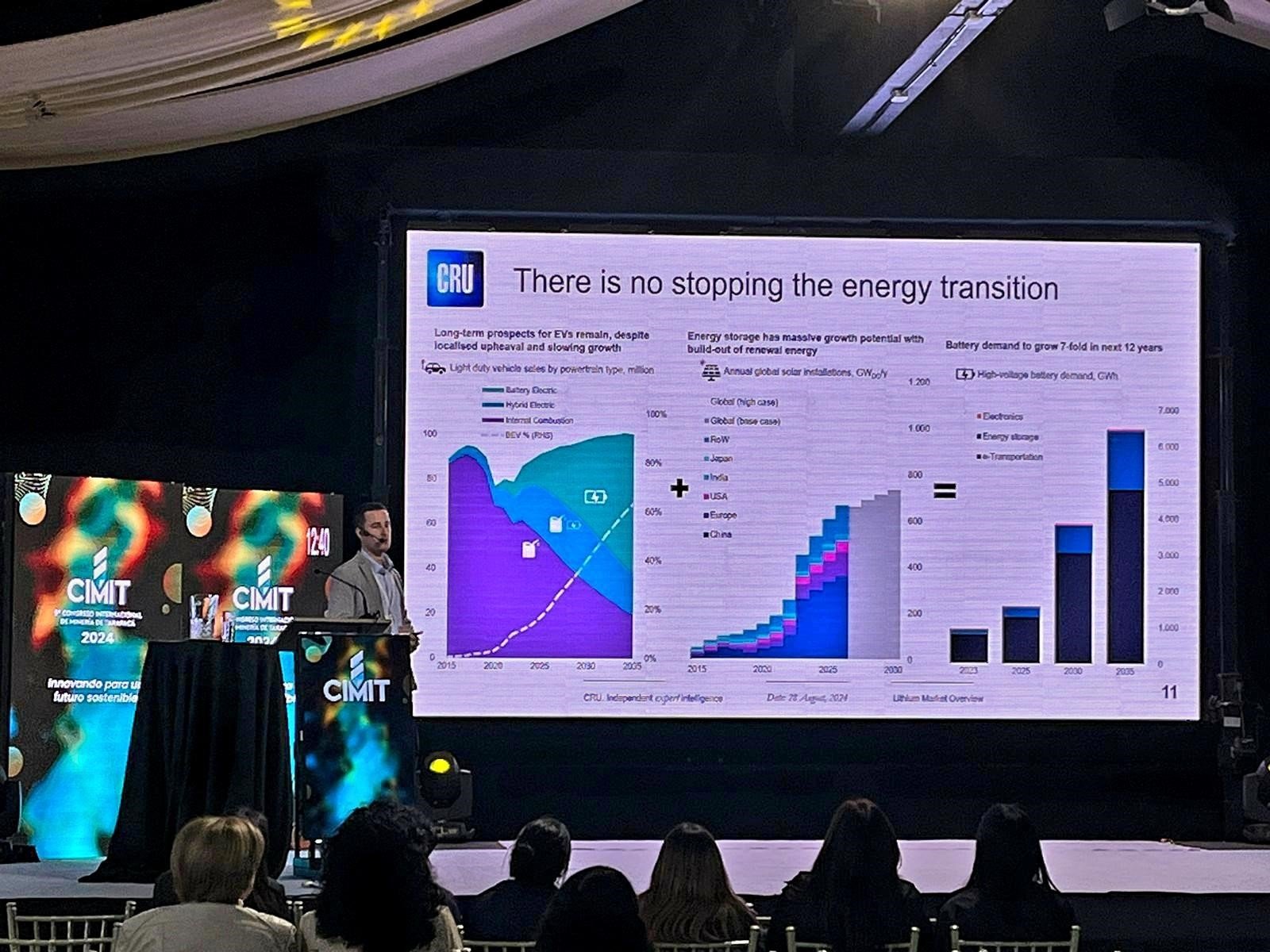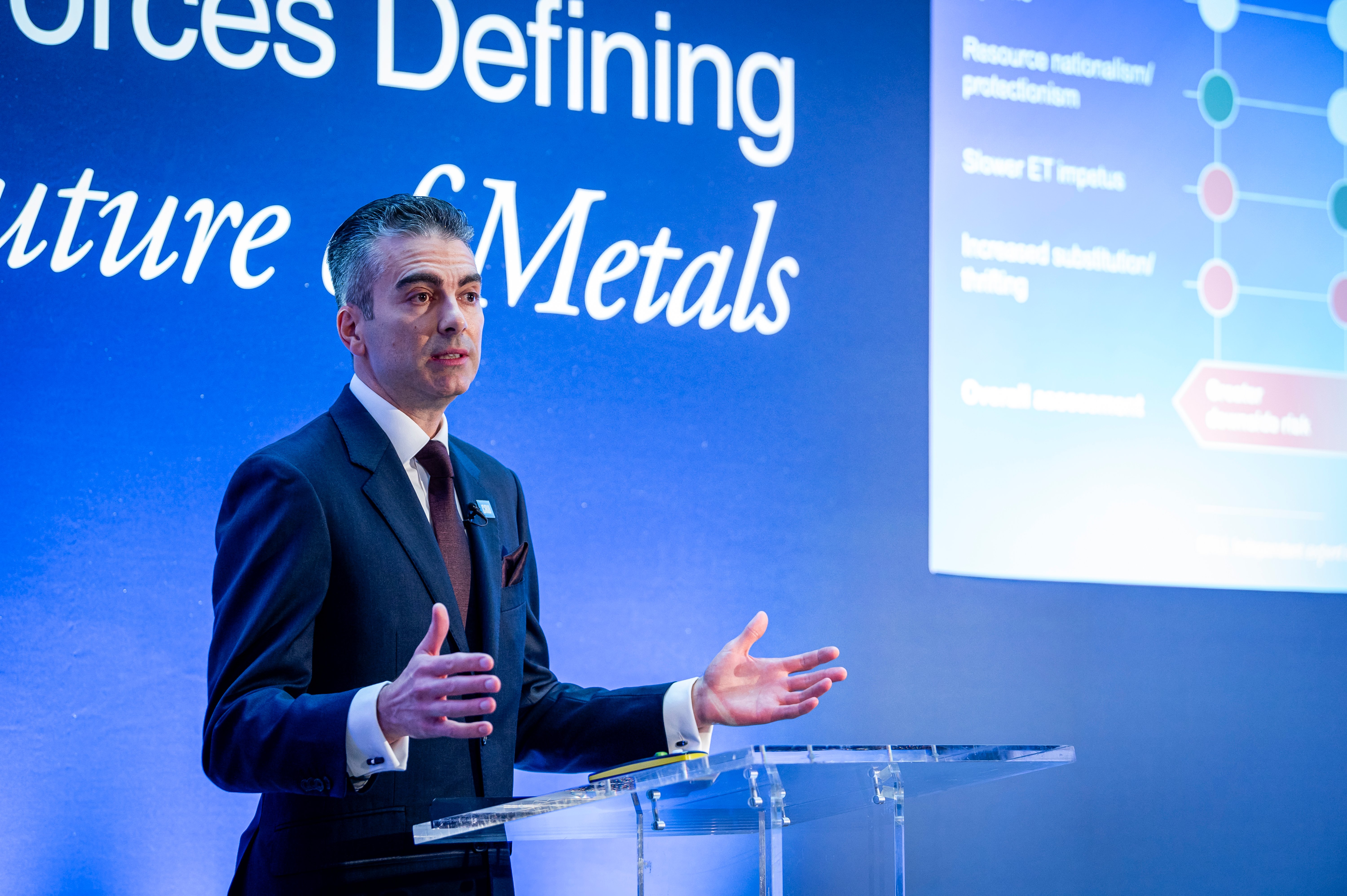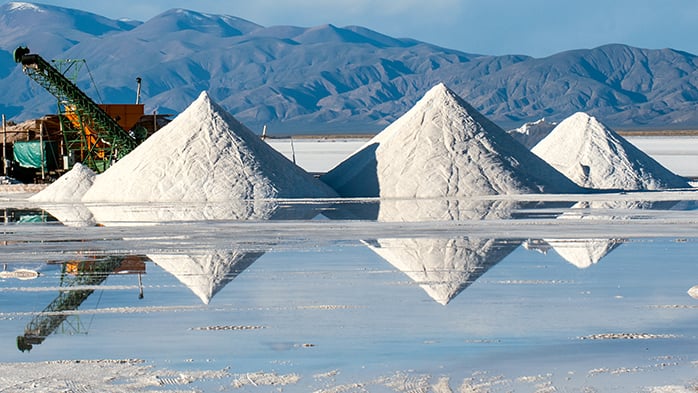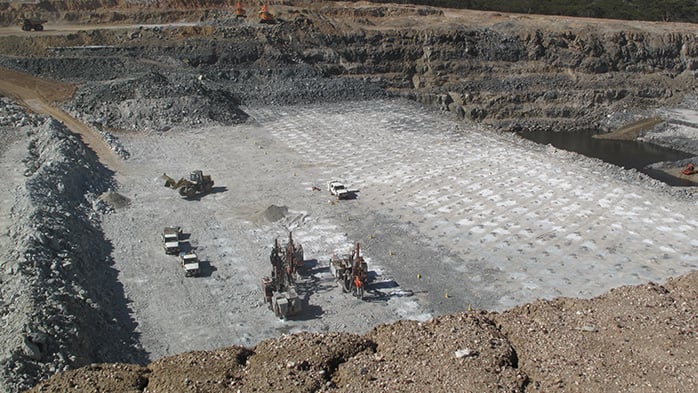If the agreement is executed, the New Operating Company (NewOpCo) to be owned by Chile state-owned copper giant Codelco (controller) and SQM will operate in the Salar de Atacama for 35 years starting in 2025. With this milestone, the Chilean Government reaches its goal to further increase its profit share over the Atacama lithium operation while SQM secures a long-term agreement – that otherwise would have expired in 2030 – to maintain its position in the sector.
SQM and Codelco MoU set guidelines for the long term
According to Chilean legislation, lithium is a substance excluded from the right of exploration, exploitation, and commercialisation for mining titles (or concessions) except for those registered prior to 1979. Any holder of an Exploitation Concession granted under the 1983 Mining Code requires a “Special Lithium Operation Contract” (CEOL). In order to operate, SQM and Albemarle have private contracts with the State agency CORFO, that holds grandfathered Exploitation Concessions in the Salar de Atacama.
The CORFO-SQM lease contract in the Salar de Atacama was amended in 2018 and defines, among other things, a maximum 40% revenue royalty rate if lithium carbonate prices are >10,000 $/t LCE and a maximum ~2.2 Mt LCE total production for the 2018-2030 period.
SQM has maintained a predominant position in the global lithium market. We estimate that since 2015, SQM has accounted on average for 17% and 19% share of the global lithium mine and brine production, and lithium refinery capacity.
On 27 December 2023, Codelco and SQM signed a memorandum of understanding (“MoU”) that stablished the terms and conditions for a partnership that sets a New Operating Company (the NewOpCo) to operate the Salar de Atacama brine operation.
Chile’s state-owned Codelco is the largest copper producing company, accounting for ~8% of global mined copper supply. It operates several open-pit and underground mines in Chile, as well as smelting and refining plants. Early in 2023, the Chilean government gave Codelco the mandate to negotiate on behalf of the state all future contracts and potential partnerships with third parties for the operation of Atacama.
Under the terms of the MoU, Codelco will own 50% plus 1 share of the NewOpCo giving a controlling position to the state-owned company. The actual conditions for the operation of the Atacama Salar and other considerations are divided in two distinct terms as summarised below.
Greater headroom for capacity expansions
For SQM, this agreement represents a compromise to their revenue stream for the five years to 2030, but greater security in the long-term. Their current agreement for the Atacama Salar is set to expire at the end of 2030 and it is highly uncertain if SQM would have been granted an extension. The financial impact will, however, be partially offset by the additional production quota that this agreement grants them for the 2025-2030 period. The current agreement would not have allowed for any capacity expansions beyond ~250 kt LCE per year, which SQM is expected to reach before 2027. The additional quota will allow capacity to be expanded by another 60 to 70 kt LCE per year, depending on the date of commissioning.
While the current market is oversupplied, prompting lithium prices falling over 80% last year, the forecast for battery demand remains very robust. Additional capacity commissioned later this decade, especially in the first quartile of the cost curve, is expected to be very well timed. Growing global raw material inventories over the next few years will take time to draw down again. There is a strong possibility, however, that a variety of teething issues could impact the operations of NewOpCo – a significant risk for an operation representing almost 20% of global lithium supply.
For Codelco, this agreement should undoubtfully be positive as it would generate a new revenue stream ‒ particularly considering the deteriorating financial condition of the company. Fitch Ratings downgraded Codelco’s credit rating to BBB+ in November last year. It also represents an opportunity to enter the lithium business without full responsibility as operator. Still, it will be the decision of the Chilean government if this new revenue stream will go as dividends to the state, or Codelco will be able to re-invest it in their core business, balancing out existing debt or develop its lithium business, namely Maricunga.
Looking at the broader picture of the lithium industry in Chile, this agreement does not materially change the political/legal/permitting framework in the country. The Atacama Salar lithium production has always technically been controlled by the state, as it is CORFO that owns the mining rights in the Salar. Uncertainty remains for the development of other lithium projects and how the proposed National Lithium Strategy will play out beyond its impact on the Atacama Salar contract negotiation.
Codelco cements its position in the Maricunga Salar
Another consideration in the MoU, is that SQM will transfer ownership to Codelco of all its mining concessions in the Maricunga Salar. This would add approximate 5,000 hectares of Exploitation Concessions for Codelco to further increase its footprint to develop a new project in Maricunga, following the announcement to acquire 100% interest of Lithium Power International (“LPI”) for a $261 million consideration (transaction is still pending).
The Maricunga Salar is the second largest high-grade lithium deposit in Chile, albeit significantly smaller than the Atacama Salar. Several players have interests in the Salar, but Codelco would cement its position by aggregating tenements as illustrated in the map below. There are still uncertainties, however, in how a project could be developed in Maricunga. Simco has announced the advancement of its stand-alone project, and also several other smaller concession owners that could pose a barrier to develop a single project. Furthermore, there are environmental and sustainability considerations, as well as development limitations in the nationally protected area.
Will SQM maintain its position as refiner?
While the brine extraction and evaporation process occur in the Salar de Atacama, the carbonate/hydroxide refining capacity currently sits at SQM’s fully owned Carmen Lithium Chemical Plant near Antofagasta city. Under the terms of the MoU, SQM commits to transfer its know-how, operating expertise, and assets needed by NewOpCo to operate. However, it is not clearly defined if the Carmen Lithium Chemical Plant would also be operated by NewOpCo (or transferred to) under the terms presented in the MoU.
The MoU states that NewOpCo will produce and commercialise the products derived from the brine extracted from the mining concessions in the Atacama Salar. The main products currently produced at the mine site could be considered to include lithium chloride (or a concentrated brine with ~6% lithium concentration), potassium chloride and potassium sulphate. Under the terms set in the MoU, it is not specifically defined what products the NewOpCo will produce and commercialise, and how new technologies may or may not be implemented for direct carbonate/hydroxide production at the mine site. In this context, NewOpCo may have to process the lithium chloride at SQM’s facilities for a refining fee or other commercial arrangement, which would need to be further defined in the final agreement.
In this scenario, SQM could maintain its position as chemical refiner for the resulting lithium chloride (~6% contained lithium) product from the brines in the Salar Atacama and potentially other sources. This could be in line with the company strategy as a chemical refiner. In 2022, SQM announced plans to acquire a plant in Sichuan, China with capacity to produce 20 kt of lithium hydroxide from lithium sulphate (which can be produced in Atacama as well); and the Mt. Holland hard rock mine in Australia (of which SQM owns 50%) includes the Kwinana refinery plant to refine the spodumene concentrate.




